SkinnyTok exposed: Inside alarming new trend promoting unhealthy eating among teens
A dangerous social media trend that has emerged under the name #SkinnyTok, promoting unhealthy eating and weight loss habits, sparking fears of the impact it could have on vulnerable youths.
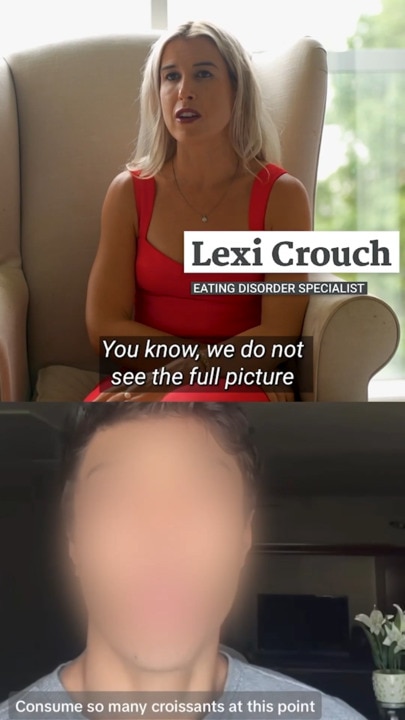
Nutrition
Don't miss out on the headlines from Nutrition. Followed categories will be added to My News.
A toxic social media trend has emerged under the name #SkinnyTok, promoting unhealthy eating and weight loss habits, with experts warning of the dangers the trend could pose for children.
Almost 35,000 posts, including 3000 in the last day, have already emerged under the hashtag on social media platform TikTok, where users share their favourite “motivational” quotes to help them lose weight or “stay skinny”.
Some of the “motivational” slogans shared include “Hunger isn’t an emergency”, “Your weight is someone’s fear weight”, “Today isn’t a cheat day because you’re already shaped like a cheat day,” and “What you eat in secret, you wear in public”.

Content creators also share tips to help them lose weight or stay thin, including brushing their teeth early to stop binge eating snacks, or turning all the lights off in the kitchen at night to stop walking to the fridge or pantry.
While the trend could be helpful for those who need to lose weight for medical reasons, experts are concerned about the dangers the trend could pose if impressionable teenagers and children come across it.
In 2024, Kids Helpline saw 164 social media-related counselling contacts in Queensland and 927 in Australia. 174 calls were made concerning body image in Queensland and 1148 nationwide in 2024.
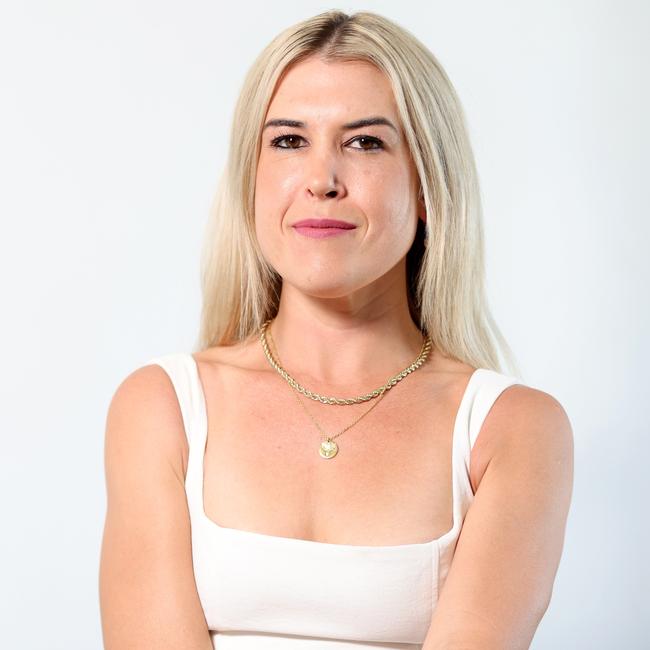
Nutritionist and Butterfly Foundation advocate Lexi Crouch said it was disappointing that these trends were still thriving on social media.
“I think we’re just missing the point again, believing that it is all weight orientated. It is giving the wrong impression to kids entirely,” Ms Crouch said.
“It is information that’s been given to teenagers making them think that they need to be skinny to thrive in the world when it actually has nothing to do with that.
“It is once you’ve got balance in your life, around food, around movement then you’re actually not thinking too much about the way that you look because you’re happy in other avenues like this.”
People and behaviour expert Mark Carter said #SkinnyTok and similar trends were “extremely dangerous” and worrying.
“Already in Australia, we have research from the Butterfly Foundation that tells us that 90 per cent of young people aged 12 to 18 have concerns around their body image,” he said.
“We also know from further research that body dysmorphia disorder is on the rise and that social media has had a significant impact on how young people view their own bodies, with social media playing a role in this rise.
“Social media is filled with trends that can be unhealthy and at times dangerous. What may seem like an innocent trend has led to serious accidents.
“This trend steps into another realm. It is not about ‘healthy eating’ it is about ‘not eating’ – what young people are being told is that the reason you are unhappy with your body is because you ‘eat too much’.”
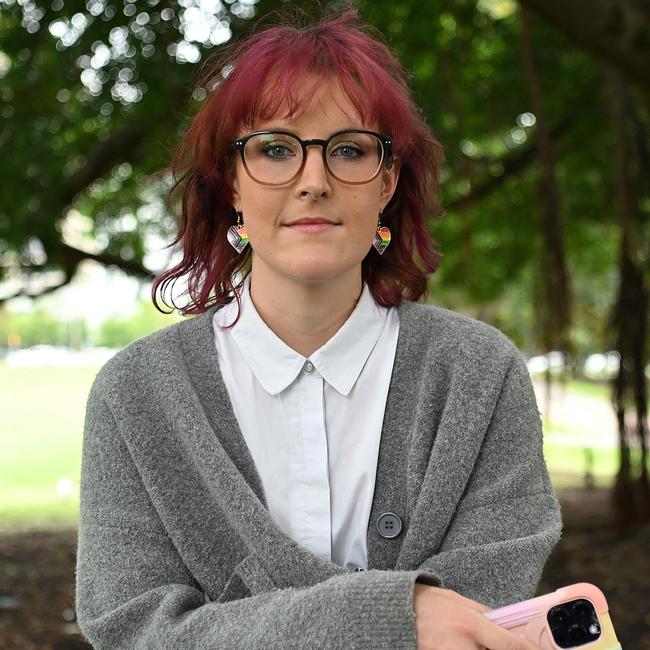
For Georgia Thomas, social media played a significant role in the development of an eating disorder when she was in her early teens.
Now six years into her recovery, the registered nurse and Eating Disorders Queensland worker continued to actively avoid unhelpful, negative content on social media.
“I don’t have TikTok – that is a conscious decision I have made – and I engage in a lot of body positivity content on Instagram. I tried in recovery to engage with social media quite purposefully and mindfully,” Ms Thomas said.
“But sometimes that (harmful) content can creep in, so you have to hit the “not interested” button to get rid of it.
“When I can, I will go through my following to see whether I am engaging with people I still align with.”
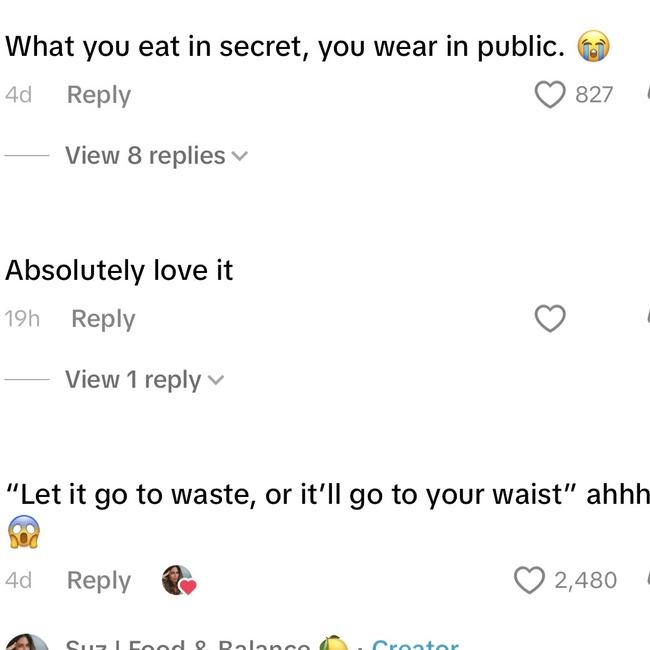
Ms Thomas said she was concerned by how similar new trends were to the messaging she saw on social media when she was younger.
“Hearing about SkinnyTok, I can definitely see some similarities to the messaging I was exposed to back in the early days of Instagram and Tumblr … I am glad I am not on TikTok,” she said.
“When I was in early adolescence I was exposed to harmful messages, misinformation, diet-culture, and it really played a part in me deciding my body was not okay.”
Butterfly Foundation head of communications Melissa Wilton said while social media alone does not cause eating disorders or disordered eating, it is one modifiable factor that may influence the development of one.
“It is concerning that content creators are sharing pro-eating disorder advice, motivational quotes or tips without appropriate health or exercise qualifications,” Ms Wilton said.
“This content can promote dangerous behaviours in relation to nutrition, dieting, exercising and body surveillance, which can be triggering for vulnerable people and negatively influence eating disorder recovery.
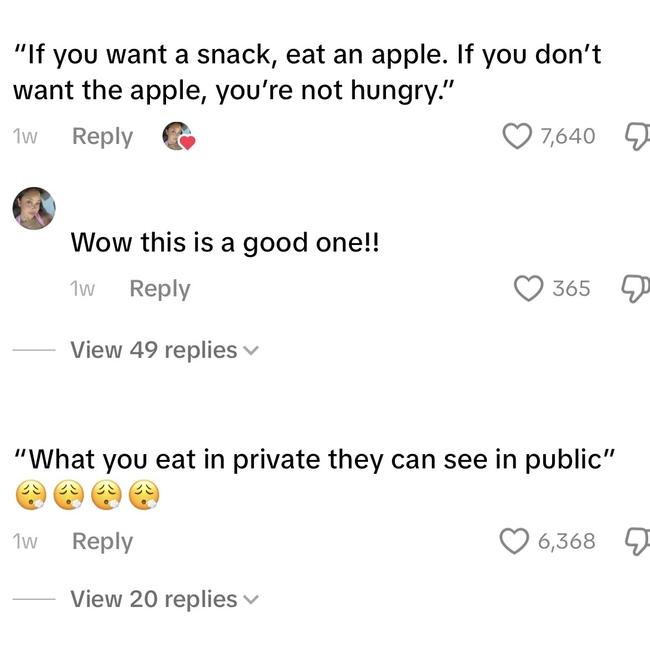
“We know that content on social media that is appearance-focused or encourages people to internalise or strive for unrealistic body and beauty ideals (such as the ‘thin ideal’) can be harmful, triggering and potentially dangerous as it increases the risk of body dissatisfaction, disordered eating and eating disorders.
“Exposure to diet culture and harmful values and beliefs around health, weight, shape and size that reinforce thin and muscular ideals, weight stigma and fatphobia can also increase body shame and a drive to achieve unrealistic body ideals.”
Eating Disorder Queensland chief executive Belinda Chelius called for urgent reform to protect young Australians from social media harms.
“Eating Disorders Queensland is deeply concerned about the dangers social media poses to the mental health of children and young people,” Ms Chelius said.
“We urge the Australian Government to strengthen its Online Safety Act 2021 (Cth) and Basic Online Safety Expectations Determination 2022 (Cth) to protect vulnerable users better.”
A TikTok spokesman said the platform was an inclusive and body-positive environment that did not allow content that depicts, promotes, normalises or glorifies eating disorders.
“When people search for content related to eating disorders, they are shown a pop-up with information and a link to the Butterfly Foundation,” the spokesman said.
Originally published as SkinnyTok exposed: Inside alarming new trend promoting unhealthy eating among teens



